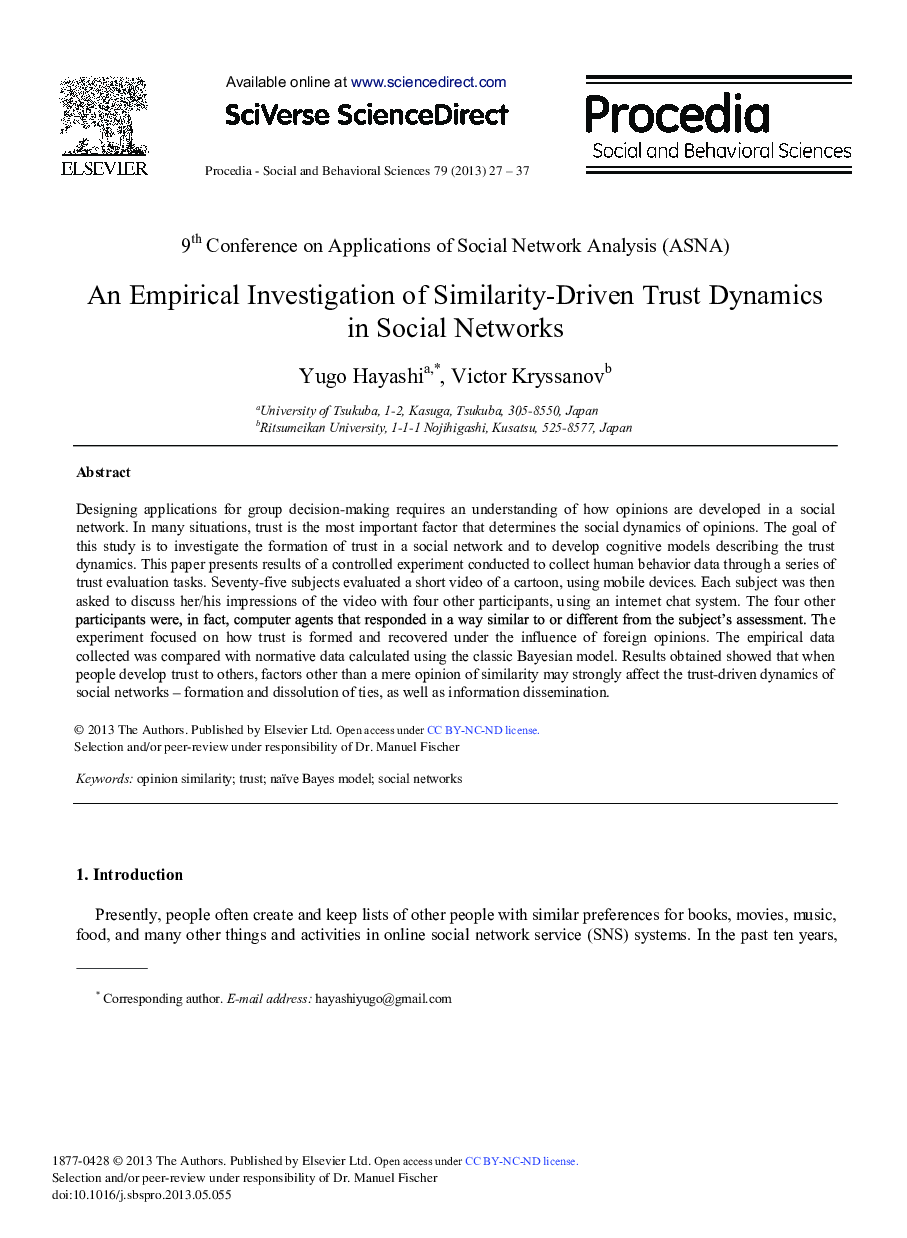| Article ID | Journal | Published Year | Pages | File Type |
|---|---|---|---|---|
| 1119215 | Procedia - Social and Behavioral Sciences | 2013 | 11 Pages |
Designing applications for group decision-making requires an understanding of how opinions are developed in a social network. In many situations, trust is the most important factor that determines the social dynamics of opinions. The goal of this study is to investigate the formation of trust in a social network and to develop cognitive models describing the trust dynamics. This paper presents results of a controlled experiment conducted to collect human behavior data through a series of trust evaluation tasks. Seventy-five subjects evaluated a short video of a cartoon, using mobile devices. Each subject was then asked to discuss her/his impressions of the video with four other participants, using an internet chat system. The four other participants were, in fact, computer agents that responded in a way similar to or different from the subject's assessment. The experiment focused on how trust is formed and recovered under the influence of foreign opinions. The empirical data collected was compared with normative data calculated using the classic Bayesian model. Results obtained showed that when people develop trust to others, factors other than a mere opinion of similarity may strongly affect the trust-driven dynamics of social networks – formation and dissolution of ties, as well as information dissemination.
